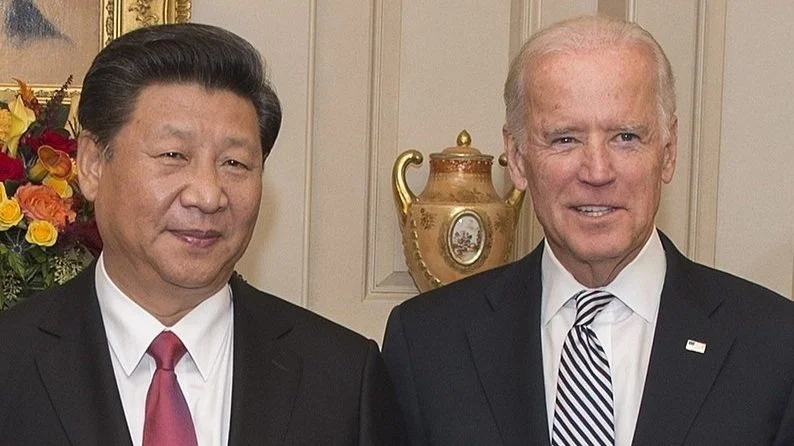History? What's that. Dusty Johnson wants to help states ban investments in China. Gov. Noem cheers him on
Ignoring the failed history of weaponizing trade as a way of contending with China, Rep. Dusty Johnson (cheered on by Gov. Kristi Noem) just sponsored a bill in Congress that would “encourage State and local governments to prohibit certain investment activities in the People’s Republic of China.” The investment activities specified by the bill apply to public money held and invested by the state, funds like those in public employee retirement funds or any other state-controlled pool of money that is held in trust.
Divesting American public money that is parked in Chinese investments is something that has been going on in recent years. On a national level, President Biden has put a halt to American investments in areas deemed critical to national security. But an across-the-board ban on all investments in Chinese enterprises? That’s been a feature of policy emerging within some individual states, a trend that Johnson’s bill hopes to facilitate.
Such bans are an endeavor that have some political value but they’re more an exercise in statement-making than any particular effort to punish or intimidate the Chinese. U.S. direct investments in China were $126.1 billion in 2022, a year in which China’s economy was valued at $17.9 trillion. In context, I doubt that the Chinese government or business sectors are particularly intimidated by the pullout of American money.
More to the point from a South Dakotan’s perspective, there is some high-level hypocrisy going on here, a charge that elected officials from South Dakota should be sensitive to. They know (or should know) more than most about the importance of our state’s business ties to China. For one thing, the sizable Smithfield Foods packing plant in Sioux Falls, where 3700 South Dakotans work, is owned by a Chinese company headquartered in Hong Kong.
For another, China in 2022 purchased $16.4 billion worth of soybeans and nearly $5 billion worth of corn from the United States, a significant portion of which was probably grown right here in South Dakota. There’s a reason that the price of soybeans and corn have been significantly higher than they were during the trade war debacle with China that former President Trump so badly executed. That reason is that the Chinese market re-opened to our row crop farmers once Trump got voted out of office.
Indeed, last spring Johnson listened to a panel of South Dakota business and agricultural leaders tell him to strengthen, not weaken, our state’s ties to China.
So how did Johnson react? By ignoring private sector leadership and coming up with this public-relations gambit that Gov. Noem gleefully supports.
It’s impossible to know if and at what point China is likely to retaliate against the trend of restricting American investments in China, but if cutbacks on purchases of American farm products are part of the Chinese game plan, South Dakota’s farmers will feel the pinch.
Meantime, there’s another side to this, a side that should trouble public money managers. Boycotting investment sectors only limits the field of opportunities that investment professionals have at their disposal.
South Dakota’s public money managers have an excellent track record, consistently matching or outperforming benchmarks. Stepping in and telling them where and where not to invest is just plain bad policy, and Dusty Johnson should back off from doing so.
Why? Because Johnson sets a bad precedent.
It ties the hands of investors and likely forces them to miss opportunities. Easy as it is to shun the Chinese now, while tensions between our countries seem to be rising, what happens another time, when for political reasons, we can redline other entities, be they countries or economic sectors or specific industries?
Politicians should know better than to stick their noses into free market mechanisms (Get that Republicans? “Free market mechanisms,” you know, the concept that you love to tout.) that they don’t understand and find politically useful to tinker with.
Everybody knows that China merits revulsion and contempt for the way it deals with human rights, but going after that country through its international economic channels is a fool’s errand, as Donald Trump (seen above in a public domain photo posted on wikimedia commons with a Chinese representative in 2019) and our country’s ag sector learned quickly and painfully.
By weaponizing our economic relations with China, Johnson and his cheerleader Kristi Noem demonstrate that they don’t particularly care about the lessons of history, if they ever bothered to study the subject in the first place.
John Tsitrian is a businessman and writer from the Black Hills. He was a weekly columnist for the Rapid City Journal for 20 years. His articles and commentary have also appeared in The Los Angeles Times, The Denver Post and The Omaha World-Herald. Tsitrian served in the Marines for three years (1966-69), including a 13-month tour of duty as a radioman in Vietnam.







